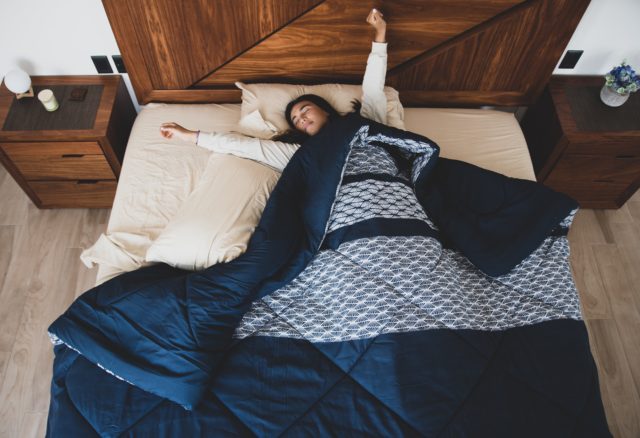
Aristotle once said, “It is well to be up before daybreak, for such habits contribute to health, wealth, and wisdom.” Of course, that’s much easier said than done, right? Waking early can be tough, especially if you’re not in the habit of it.
The good news is that you can train yourself in how to wake up early.
In this guide, we’re going to walk through both the why and how of becoming an early riser.
Let’s get started!
Benefits Of Getting Up Early
Being an early riser numerous benefits. One of the most prominent benefits is increased energy and improved cognitive functioning. After all, our bodies are naturally programmed to be in sync with the rise and fall of the sun, something it regulates through the use of Circadian Rhythms.
The circadian rhythm is a 24-hour cycle the body uses to manage all kinds of functions, such as digestion, heart rate, metabolism, blood flow, and sleep. To do this, it uses environmental cues and stimuli, most notably light, to determine when to start and stop certain processes.
In some ways, these rhythms can be thought of as an internal master clock to which many of your bodily functions are set. While there is an almost endless list of ways your internal clock can be nudged out of sync, a poor sleep schedule, especially one that involves heading to bed late and getting up late, is the most common culprit.
A biologist named Christopher Randall published a study in 2010 which demonstrated that, on average, people who begin their day early in the morning enjoy more success throughout their professional life than those who do not.
Similarly, another study (which focused on college and university students) found that self-described ‘morning people,’ meaning individuals who avoided staying up late and who woke early, earned a full grade point more than self-described ‘evening people.’
Aside from health reasons, getting up early leaves you with more time to complete important tasks and do meaningful work. Think about how you spend your time when you stay up late. If you’re like most people, you spend your late-night hours watching TV or surfing the internet. However, when you wake early, you have more time to exercise, take up a hobby, complete personal projects, and advance your career.
How Much Sleep Do You Need?
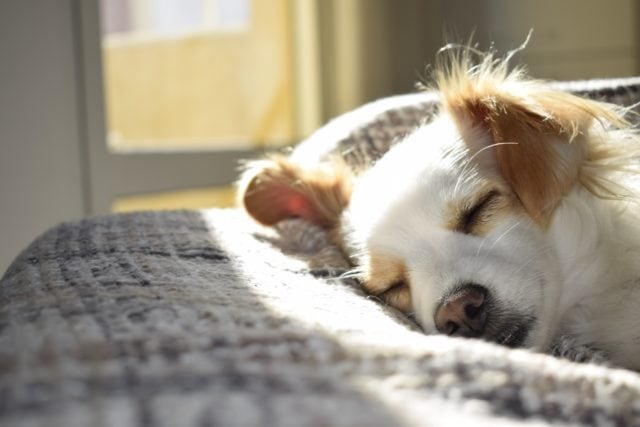
While it differs from person to person, most people need between 7 – 8 hours of sleep every night. This number should guide you as you think about waking up early.
If you want to get out of bed by 7 am, then you need to go to bed early enough to ensure you get an adequate amount of sleep.
How To Start Waking Up Early
Very few people would disagree that waking up earlier ultimately leads to a healthier and more productive lifestyle. The real challenges are habit and motivation.
You might have every intention of going to bed several hours before your regular bedtime in hopes of getting an early start for the coming day. However, even with the best intentions, you may have difficulty falling asleep and instead find yourself lying wide awake, tossing and turning, waiting for sleepiness to hit.
When the alarm clock finally does begin to sound, you turn it off, telling yourself, “I didn’t even get 8 hours of sleep”, before hitting the snooze button.
If this sounds familiar, don’t worry, it’s a common occurrence. Changing your sleeping schedule can be tough in the beginning, especially if you’ve followed the same schedule for many years. Kicking your old schedule cold turkey is not the best plan for success.
Thankfully, there are strategies and methods you can use to create your desired sleep cycle and wake up early.
Start Gradually
Almost all goals are accomplished through a gradual process. You pick what you want to achieve at some point in the future and you go through a course of incremental improvements to get there. Learning how to wake up early is no different.
Changing your sleep cycle and waking up early is a goal, and it should be treated as such. Most people trying to change their sleeping habits attempt to make drastic changes right away, without giving their body time to adapt. If you go this route, you’ll end up feeling sleep-deprived, sluggish, moody, and irritated. There’s a good chance you’ll end up “relapsing” back into your old sleep and wake pattern.
In light of this, making small, gradual changes, is a much better approach, and one that’s far more likely to be successful. For example, let’s say you’re currently waking up around 10:30 am on most mornings, but your goal is to wake up at 6:30 am instead.
The difference between your current wake time and your desired one is 4 hours, which is a significant portion of the day! Expecting your body to adjust to such a large difference right away is just asking for trouble and is more likely to bring frustration than anything else.
A better approach would be to gradually wake up 15 minutes earlier each week until your desired goal is hit. On average, it takes 30-60 days for a person’s body to fully adjust to a new sleep cycle, so there is no reason to rush the process.
Go To Bed And Wake At The Same Time
Getting on a regular and consistent sleep cycle can be extremely beneficial for your physical and mental health. Sadly, far too few people have a set sleep plan, and many people’s bedtime can fluctuate by as much as two or three hours on a day-to-day basis.
Of course, with work, family, and maybe even school obligations, getting to bed at the same time every night is not always possible. However, unavoidable commitments are not the most common cause of a poor sleep schedule. Usually, the problem is more to do with when people decided to go to bed.
Maybe you decide to stay up and watch two more episodes on Netflix or spend a few more hours on social media. Or maybe you just enjoy the quiet of the evening. While these things are understandable, they make it much harder for you to wake up early.
When setting a sleep schedule, it’s essential that you choose a realistic time to head to bed. For example, if you live in a house with roommates, heading to bed at an hour when everyone is still awake, moving around, making dinner, etc. probably won’t work.
Remember, the purpose of a consistent pattern of sleep is to train your body to gear up for sleep mode when it is time to go to bed. If you pick a bedtime that you have difficulty hitting two or three nights of the week, it won’t have much, if any, effect on your overall goal of waking up earlier.
Improve Your Bedtime Routine
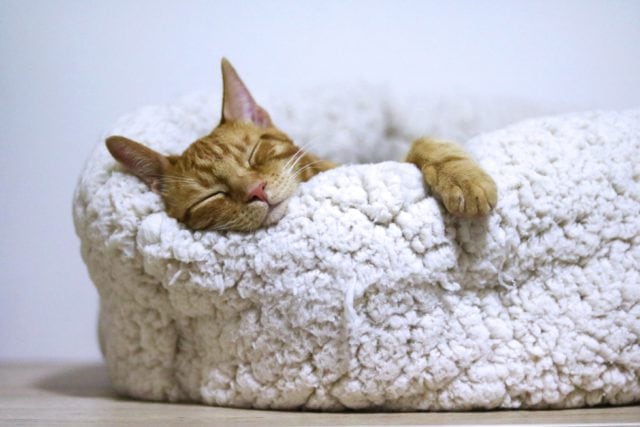
A bedtime routine is a set of actions you perform 30 – 45 minutes before you turn off the lights and lay your head down. In an ideal world, these actions are carried out in the same order every night to the point where they become a habit.
The purpose of a bedtime routine is to train your brain to associate the actions with getting ready for sleep so that as you’re in the process of completing them, your body is already shifting into sleep mode.
When it comes to a bedtime routine, most people think of tasks like brushing your teeth, washing your face, and changing into your pajamas. While these are all things that could (and probably should!) be incorporated into your routine, there are plenty of other things you can incorporate as well.
Stretching: If you’re like most people, you could probably stretch more. Stretching has been shown to improve general well-being among people of all ages, and those who begin stretching when they are young are considerably more mobile long term.
Stretching is an excellent low energy, non-exciting activity you can make part of your routine that will also pay dividends in your day-to-day life, especially as you grow older.
Meditation: Meditation has long been recommended for people who have difficulty in falling asleep, and for good reason. While some instances of insomnia are physiological in nature, most people’s inability to fall asleep stems from high levels of stress, something which meditation is very good at reducing. Even if you don’t have trouble falling asleep, a 20-minute meditation session before bed is an excellent thing to add to your pre-sleep routine.
In addition to reducing stress, meditation requires you to focus heavily on your breathing, which is a trick many sleep therapists recommend to those who suffer from insomnia. By taking slow, deep breaths, for ten minutes or more, it signals to your brain that it’s time to wind down, get ready for rest, and get the proper circadian rhythm going.
Read: Reading before bed is a classic bedtime habit that many people enjoy every night. The only catch is that when reading, it’s important to not become so engrossed in your book that you end up staying up past your designated bedtime.
Don’t Use Electronics: A 2011 poll done by the National Sleep Foundation found that over 90% of Americans use electronic devices before attempting to fall asleep. This number should come as no surprise, and you probably spend some time on Facebook, Instagram, Reddit, or YouTube before turning off the lights.
And while there is nothing wrong with watching videos before bed, researchers have determined that blue light (light composed of electromagnetic radiation) has a significant impact on your ability to sleep. Although invisible to the eyes, most electronic devices with screens emit blue light, which interacts with your circadian rhythms in such a way that makes you feel awake and alert.
If, for one reason or another, you feel you can’t go without a little screen time before bed, then at the least turn on the blue light filter available on most modern smartphones, tablets, and laptops.
Get Out Of Bed As Soon As You Wake Up
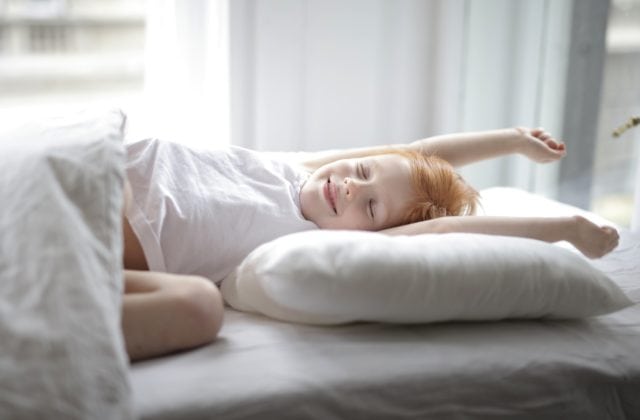
No matter how good your nighttime routine is or how diligent you are with heading to bed at the same time if you don’t get up and move as soon as the alarm clock goes off, your chances of waking up early as much lower.
For many people, getting out of bed in the morning is even more difficult than going to sleep early. If you’re one of these people, then consider putting your phone (or whatever device you use as your alarm clock) far enough away that you have to get up to turn it off.
Once you’re up and out of bed, it’s much easier to resist the urge to crawl back under the covers and hit the snooze button on your alarm clock.
Don’t Spend Too Much Time In Your Bed
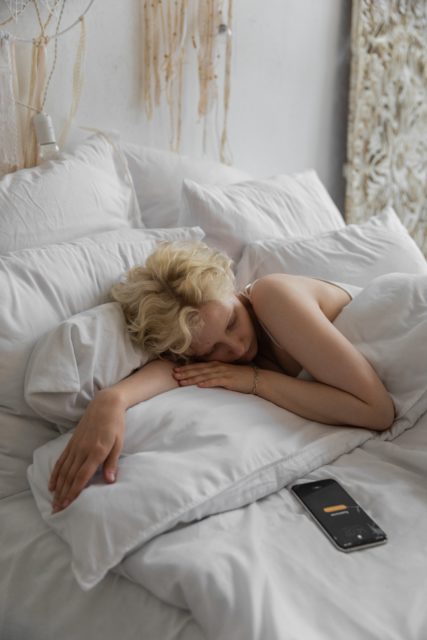
Sleep researchers suggest not spending too much time in bed, and that your bed should be reserved for sleeping. Why? Because you don’t want the brain to begin associating the bed with things you do during the day, and instead want it to associate the bed with sleep time.
Doing this may be hard, especially if you’re a student living in a dorm. In general, however, the less time you spend sitting on your bed, the easier it will be to fall asleep when the time comes and then wake up early.
Eat a Light Dinner
In the western world, we’ve become accustomed to eating large dinners, and our last meal of the day is typically our largest. Although eating a healthy portion of food may initially make you feel drowsy or sleepy, going to bed with a full stomach can have some unpleasant side effects.
For example, once the body starts entering sleep mode, it shuts down its digestive processes. When undigested food sits in your stomach, it can cause gas and acid reflux, making it difficult to sleep.
If your schedule forces you to eat a late dinner, then consider eating tryptophan-rich foods such as fish, chicken, and eggs instead of meals with lots of red meat and heavy starches. The amino acid tryptophan is the main raw ingredient the body uses to produce the sleep-promoting hormone melatonin. By consuming tryptophan-rich foods, you can help limit gas and acid reflux and encourage sleepiness as well.
One of the benefits of waking up early is that it gives you more time for a healthy breakfast in your morning routine. While you probably have heard that breakfast is the most important meal of the day, most people don’t eat a quality meal in the morning, and their food consumption is often a quick snack on the go.
Moral of the story? If you want to wake up early, eat a larger breakfast and a small dinner!
Avoid Sugary Energy Drinks and Coffee
Caffeinated drinks, such as coffee, tea, and most sodas, are not a good choice of beverage to consume before bedtime. As you probably know, caffeine is a stimulant, which makes you more alert and less sleepy.
Drinks with refined sugar, such as concentrated fruit juices, soft drinks, and energy drinks (which usually have caffeine as well) are another poor choice of beverage to consume before bedtime. In fact, sugar has been linked with restless and disruptive sleep, especially when combined with a diet of low fiber and high saturated fats. If your goal is to get to bed and wake up early, then these types of drinks should be avoided for at least five hours before heading off to bed.
Instead of drinking sugary or caffeinated drinks before bed, consider enjoying a cup of soothing chamomile or Valerian Root tea, or any other caffeine-free tea known to promote quality sleep.
Silence Your Phone
If you’re like most people, you probably have a huge number of notifications hitting your phone throughout the day. And while phone calls and text messages from friends, family, and coworkers typically drop off during the evening, notifications from social media sites like Facebook, Reddit, Instagram, and others don’t stop.
If you sleep with your phone next to your bed, consider putting it on silent mode, or at least silencing notifications from applications that tend to ping, buzz, and beep in the night. Even small noises can disrupt your sleep, making waking up early harder.
Take A Low Dose Of Melatonin
In the 16th century, the Greeks discovered a hormone in the brain that appeared to play a significant role in putting people to sleep. Throughout the following centuries, scientists have done a fair amount of research on this naturally occurring hormone, called melatonin, and it is now synthesized and sold as sleep supplement at most pharmacies, supermarkets, and drug stores.
Because melatonin production begins when your eyes remain closed for an extended period of time, it is sometimes referred to as the ‘hormone of darkness’ and it’s used by thousands of people every night in small doses to help them fall asleep.
If you’re one of those people who have a hard time falling asleep, consider taking between 0.5 mg and 3 mg before bed. Although large doses are safe, most people find higher doses end up producing daytime sleepiness as well.
Limit Light At Night
Light is the most significant external factor affecting sleep quality, and light pollution is a serious problem for those who live in large metropolitan areas.
As we noted, your brain begins to produce melatonin once it senses darkness for an extended period. If you’re exposed to a significant amount of light when you try to fall asleep, it will prove significantly more difficult than it would in darkness.
Besides melatonin, light can also impact the brain’s ability to cycle through the necessary stages of the sleep cycle. Although not all sleep researchers agree on all the details, the general consensus is that the brain goes through four stages during a standard sleep cycle.
The first, and shortest, stage can be thought of as the period of drowsiness you experience before losing consciousness and going to sleep. You’re still awake, but you notice that you’re tired and ready to go to bed.
The second stage is accompanied by a drop in body temperature, relaxation of the muscles, and reduced heart rate. Stage three is considered a deep, fuller version of stage two and many sleep researchers believe it is at this point that the body undergoes its healing process.
Finally, there is stage four, which is where REM (rapid eye movement) occurs. During REM sleep, brain activity increases significantly, and most scientists believe this stage plays an important role in the processing and development of cognitive functions, although the subject is still somewhat of a mystery.
By sleeping with light sources nearby, you’re severely impacting your body’s ability to pass through these four stages, and the result will be a poor quality sleep and difficulty waking up early.
Curb Alcohol Consumption
If you’ve ever had a couple of drinks before going to bed, you know that alcohol can help you feel sleepy. Because it acts as a depressant on the central nervous system, beer, wine, and liquor will help you feel calm, relaxed, and ready for bed. However, the benefits stop there and alcohol can actually cause poor quality sleep.
When you consume alcohol, it decreases brain activity, which may be great for falling asleep, but it can severely impact your ability to pass into stages three and four of the sleep cycle.
See A Sleep Specialist
If you’ve tried all the tips listed above, but still can’t seem to adjust your sleep cycle enough to get up earlier, it may be time to see a sleep specialist. Sometimes, people have physiological issues that prevent them from falling asleep when they want to, and professional help is needed to sort these problems out.
Better Sleep = Better Life
Waking up early has a significant number of benefits and is one of the keys to being productive. If you’re feeling a bit intimidated at the thought of waking up earlier, don’t be. Remember, the key to getting up early is to change things gradually. Your circadian rhythm won’t change overnight. But as you slowly adjust your schedule so that you go to bed earlier and develop a strong morning routine, you’ll find it easier and easier to wake in the early morning and avoid snoozing your alarm.

Hi, I have a quick question!
First of all, thank you for the detailed guide. You talked about taking melatonin but I want to ask the natural sources of melatonin that we can use in our everyday life.
I don't want to take it as a supplement but would like to know the foods that contain melatonin.
I have heard that Eggs help you in this, what do you say about it?
Looking forward to your response.